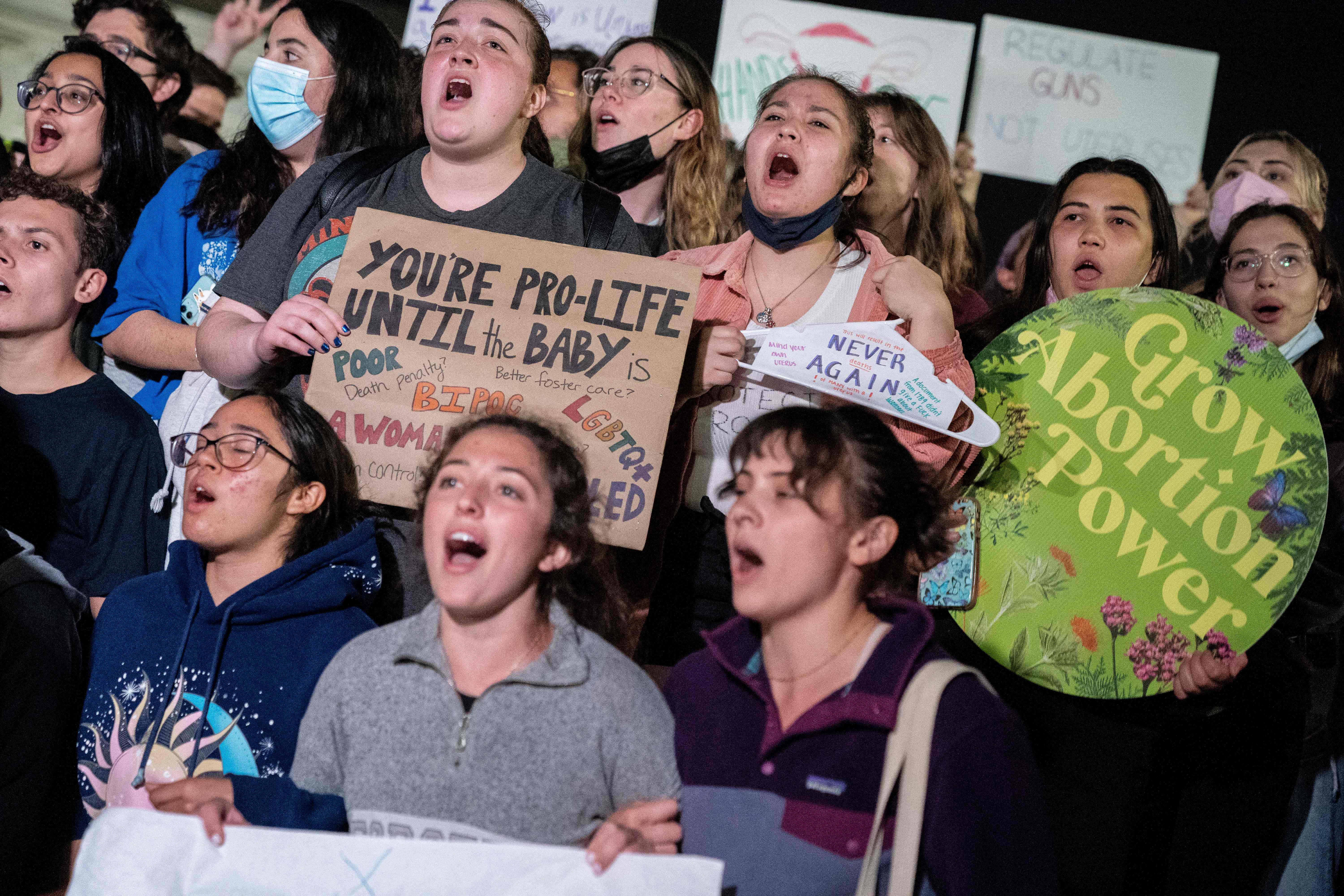Could Roe v Wade have grave implications for British women?
The US Supreme Court is likely to overturn Roe v Wade abortion law, according to a leaked draft – but what are the chances of a similar ruling over here?


Your support helps us to tell the story
From reproductive rights to climate change to Big Tech, The Independent is on the ground when the story is developing. Whether it's investigating the financials of Elon Musk's pro-Trump PAC or producing our latest documentary, 'The A Word', which shines a light on the American women fighting for reproductive rights, we know how important it is to parse out the facts from the messaging.
At such a critical moment in US history, we need reporters on the ground. Your donation allows us to keep sending journalists to speak to both sides of the story.
The Independent is trusted by Americans across the entire political spectrum. And unlike many other quality news outlets, we choose not to lock Americans out of our reporting and analysis with paywalls. We believe quality journalism should be available to everyone, paid for by those who can afford it.
Your support makes all the difference.On the way into work early this morning I checked the headlines and felt like I’d been punched in the stomach. Millions of women will today be feeling the same.
The ricochet of the probable overturning of Roe v Wade – Politico has revealed an early draft opinion leaked from the Supreme Court suggesting an imminent vote that could remove the right to a legal abortion in dozens of US states – can be felt globally. For on the surface of things, while this “only” appears to affect America, in truth it affects us all.
The gradual dominance of conservative ideals in the US in recent years mirrors, in many ways, what can be already seen in so-called “modern” Britain: we are living through a time which is more focused on the crackdown on civil liberties than in protecting human rights; where we can see, clear as day, the “othering” of disenfranchised communities through odious legislation such as the Nationality and Borders Bill. We have plans from our own government to send vulnerable refugees over to Rwanda, a failure to ban trans conversion therapy, the deliberate stoking of so-called “culture wars” and straw man arguments used to perpetuate a “war on woke”.
And now, the possible, frightening ripple effect from America’s Supreme Court – a slow and suffocating squeeze on women’s bodily autonomy. Even the leak of the draft is a mark of how far things have drifted. We should all pay close and careful attention to what is coming in from the evangelical elite. We’re not that far across the pond.
After all, at home we have Jacob Rees-Mogg, a prominent Tory frontbencher, saying he completely opposes abortion and believes it to be “morally indefensible” – even after a woman has been raped. The current culture secretary, Nadine Dorries, has repeatedly called for the time limit for abortions to be cut from 24 weeks to 20 – and attempted to amend the law in 2011 to strip abortion providers of their role in counselling women (she also wanted to introduce a 10-day “cooling-off” period before a termination).
If views like this make you nervous, you’re not alone. But what are the realistic chances that the right to an abortion could be taken away from women in Britain, too?
Roe v Wade legalised abortion nationwide nearly 50 years ago. In England, Scotland and Wales, we have the Abortion Act of 1967: meaning you can legally have an abortion at up to 23 weeks and 6 days of pregnancy. Terminations have been legal in Northern Ireland since 2019, but full services have not yet been centrally commissioned. So far, the law protects women. But there’s still the possibility that parliament could change it.
I spoke to The Independent’s legal team to find out what would need to happen for this to occur – the most striking difference between Britain and America is that here, parliament has full control. “In this country, the overriding principle is that parliament is supreme,” one of our lawyers told me. “Parliament can do whatever parliament collectively wants. The courts do not have the power to overrule legislation. But in the US, it’s completely different.”
How? Well, in the US, the Supreme Court can vote down legislation. In the last 24 hours, we’ve discovered that to do so, they would have to say that the original judgement of Roe v Wade handed down on 22 January 1973 was wrong, because it wasn’t consititutional. In that case, it could be overturned.
The British Supreme Court, on the other hand, do not have the same powers. “They can’t say that the Abortion Act of 1967 was wrong,” our lawyers told me. “The only way that the law can be repealed is if parliament wants to repeal it.”
For that to happen, a political party – in this case, say, the Conservative Party, as they are the ones currently in power – would have to take it up as a pressing concern and make it part of their manifesto. It would be treated as any other proposal. They would just need to get enough votes to make it happen.
On the face of things, a complete repeal of the Abortion Act looks extremely unlikely – there doesn’t seem to be any political appetite, on either side, for such draconian measures. But what could happen is an amendment to the original Act: such as the reduction of the time limit women are allowed to seek a termination.
To keep up to speed with all the latest opinions and comment sign up to our free weekly Voices Dispatches newsletter by clicking here
Again, this wouldn’t be out of character for the Tory Party – Jeremy Hunt said in 2019 that he believed the time limit for having an abortion should be halved, from 24 weeks to 12. Hunt, who served as health secretary between 2012 and 2018, said it was his view that abortions should only be allowed for women up to 12 weeks after conception. Bear this in mind when you read reports that Hunt, who finished second to Johnson in the last leadership election, is preparing a bid to oust Boris Johnson.
If a parliamentary decision was made to amend the existing act, it would likely happen in one of two ways: either an individual MP would introduce a private member’s bill (which would then need to be adopted by the government to have any chance of passing); or the government could vote to adopt an amendment. The process doesn’t end there, however: if the Commons makes amendments to a Bill, the Lords must consider them. They can either agree or disagree to the amendments, or make alternative proposals.
In short, it’s compex and controversial – and overall, appears unlikely. However, events in the US certainly show that we should never let complacency take hold.
Join our commenting forum
Join thought-provoking conversations, follow other Independent readers and see their replies
0Comments